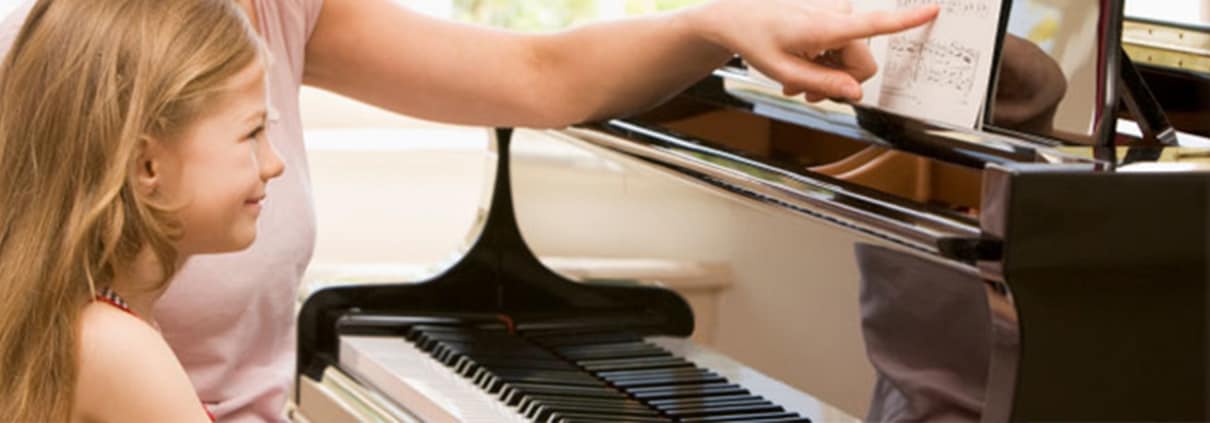In our Music School in SW Portland we see hundreds of students sign up for lessons every year, eager to embark on the exciting journey of learning music. There is always a honeymoon period when you begin an instrument, where everything is exciting and new. This period may last weeks or months but after this initial phase motivation and inspiration can begin to lesson. In our Portland Oregon piano lessons program we meet frequently as teachers to increase our ability to motivate and inspire our students so they can sustain a long term and lasting musical experience. Here are some tips that will surely come in handy for yourself or for a son or daughter.
#1) Plan your practice week in advance. This is one of the main reasons that people do not practice, lack of planning. A student might feel good about lessons as well as their instrument, but perhaps they have not found a consistent way to fit lessons in during the week. Take a moment to mark down 4 to 6 days and times of the week where you know you can practice. Write this down as a weekly practice plan and place it where you will see it everyday, such as on a mirror, door or refrigerator. Just recently the head of our piano lessons in Portland Oregon program mentioned that this had increased practice in nearly all of her students and it is her #1 technique.
#2) Assess the level of Motivation. Ask the question “how do I feel about playing music these days?” and rate the answer on a scale of one to ten with ten being the highest. Any score below a 6 means that you need to change your practice plan to increase the motivation. One of the best ways to do this is to change the piece. As an instructor you can play 5 to 10 excerpts of pieces for a student that are within their ability and have them rate them on a scale of 1 to 10 for how much they like the piece. Take the piece or pieces with the highest ranking and begin working on these. One teacher at our Portland Oregon guitar lessons location, keeps a notebook with ten of the most popular pieces with him. This is very convenient because you can begin to work on the new piece right away and students are often excited to get home and start practicing!
#3) Understanding what to do when frustration sets in. If you have planned your practice and you are motivated then you begin to spend more time with your instrument. However, you might find yourself frustrated if the piece or exercise you are working on is not going well. There are several things you can do to overcome this roadblock. Firstly, slow down and allow yourself to be able to consciously understand what you are doing. It is very likely that you are playing too fast for the skill at hand (subconscious speed) and you need more very slow conscious training of the music to learn the skill. Stopping frequently and just thinking about the music is another way to slow down and learn it from a conscious place. Secondly, try playing it many different ways to break out of the roadblock. Try it too fast and then too slow. Play it too loud and then too soft. Play it with your body tense and then with your body soft. After doing these experiences you will be wiser to the music. Now, imagine how it sounds ideally and play it naturally and with ease. The third way to overcome frustration is to simply walk away. Sometimes our mind needs space for the learning to soak in. Stop playing it and listen to it on a recording or listen to play of an inspiring artist. Try it later in the day or after a good night’s sleep. It will often be there for you when you have the wisdom to know the music needs a break and a chance to “breathe.”
#4) Commit to a long-term experience with your music. In our Portland Piano Lessons Portland school we recommend that students commit to at least two years of learning before they entertain any thoughts of quitting. At that point you will want to commit to another two years. The truth is that learning an instrument will not move in a steady line and it will rise and fall over time. Usually the changes are small, however sometimes they can be larger. A large drop in motivation will cause a non committed student to quit, however if you have committed to at least two years you will stick it out and hang in there. If you do this you will come out in the end with not only greater skill but a feeling of confidence and self esteem that you can stick with things and accomplish very much.
It is our hope that these ideas are helpful to you as you journey along your musical path. Music is a lot of fun and if you use these ideas you will overcome many roadblocks, leading you to a more rewarding and fulfilling experience.










